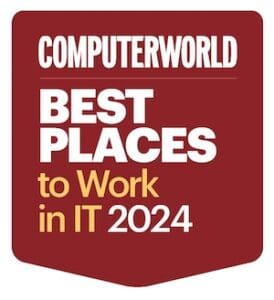Today’s rapidly changing digital landscape has forced small and medium-sized enterprises in Little Rock, Arkansas, to adopt innovative solutions to remain competitive. However, with the growing need to adopt innovative technologies, businesses identify that managing and optimizing the right technological infrastructure is expensive and time-consuming.
This is where a technology partner comes in. A technology partner identifies your business needs, assesses your market, determines your technology needs, and adopts the right combination of practices and processes to infuse the right technology into your business. A technology partner can offer technical expertise, managed services, and ongoing support to ensure an organization optimizes new technology while focusing on its core business.
The Little Rock area is home to many technology companies, each claiming to offer superior solutions that match your needs. However, you must understand that selecting the right partner requires due diligence and thorough evaluation.
You can navigate the selection process smoothly by following the steps outlined below and finding a technology partner who’s the best fit and an asset to your company.
1. Understand your business needs
The first step in adopting new technology or partnering with a technology vendor is understanding your immediate and long-term business needs. As technology grows, businesses are challenged to stretch out their wings and reach new frontiers.
However, managing and optimizing new technology is a challenge. You should prioritize your most pressing business needs and hire a partner. You can then scale up your technology requirements based on unique business needs. For instance, if your storage problem is more pressing than your need for cybersecurity services, you can partner with a managed cloud service provider to upscale your storage.
2. Background research
The second step is to carefully and thoroughly research potential technology providers. Writing down a list of potential technology partners is the first step in identifying how many exist and their services. One advantage of background research is to tap into professional help and leverage their market knowledge. Professional and reliable technology providers have years of experience. They can share their in-depth market knowledge and technical expertise to add value to your business technology chain.
3. Compatibility and expertise
Assessing their compatibility and knowledge is crucial when searching for a technology partner in the Little Rock, Arkansas area. Your business needs a partner who understands its needs and can apply their skills and knowledge to meet them. Assessing potential partners is an important part of aligning compatibility and expertise with your business requirements. Identify whether a technology partner has capabilities aligned with your unique business needs.
4. Pricing and contract terms
When looking for a technology partner in Little Rock, Arkansas, it’s important to understand the contract and pricing terms. Making an informed decision involves knowing all the financial obligations and matching these financial requirements with your budgetary goals. Know the contract’s facts and determine any legal and compliance requirements or implications that may emanate from violating the contract’s clauses.
5. Future-readiness
Future readiness refers to the scalability of your technology partner. As your business grows, technology will change. You will have to adopt new technology to evolve at the same pace as your competitors. It’s, therefore, advisable to assess whether your technology partner has the right mix of potential and capability to meet your future business requirements. Select partners with a forward-thinking mentality who can adapt their services to support your long-term business goals.
6. Technical skills
Technical skills and certifications play a central role in the success of your technology partners. Certificates show that the technology partner possesses a mix of technology skills in specialized. These areas may include network monitoring, software configuration, cybersecurity, or managed services. When selecting your partner, consider industry-standard certifications such as CompTIA, Aruba, HPE, Fortinet, and Microsoft. Reputable and high-standard certifications demonstrate your partner’s continued commitment to staying updated with the latest technology.
7. Reliability and security
One of the leading reasons for hiring a managed service provider is to deal with service downtime, especially when you’re a victim of a malicious cyberattack. Reliability and uptime are critical requirements for every business venture. If you’re dealing with fast-food orders, you need your systems to respond to every customer request and close every deal. Therefore, when looking for a technology partner in Little Rock, Arkansas, you should evaluate their security measures, backup and recovery processes. Select a vendor with superior security, backup, and business continuity solutions.
8. Communication
Effective communication ensures that information about project goals is conveyed from the client to the technology provider. Collaboration is essential for the overall success of a vendor-client partnership. You should evaluate your partner’s availability, responsiveness, and communication channels. Consider your compatibility with the provider’s communication style. Select an IT partner whose communication style resonates with your approach to business communication.
9. Consultations and recommendations
It’s important that you seek guidance from industry peers. Schedule consultations with potential vendors to identify their offerings, timelines, budget and communication channels. Consulting with a few managed service providers will give you a broader perspective of considerations when selecting a technology partner. In addition, gathering feedback and recommendations from industry peers will help you zero down on the most appropriate partner.
10. Service offerings
Last but not least is your partner’s ability to provide a wide array of specialized and technology services. Your technology partner must have a collection of services, including cybersecurity, cloud computing, IT consulting, and managed services. When selecting a technology partner from Little Rock, Arkansas, emphasize the importance of proactive monitoring, regular maintenance, and timely support. The partner must respond quickly and offer holistic technical solutions to the most pressing concerns.
Edafio is your trusted technology partner in the Little Rock, Arkansas area and the mid-south region. With expertise in IT consulting, managed IT, assessments and healthcare consulting solutions, Edafio works closely with businesses of all sizes and scales to identify their technology needs and tailor solutions to these needs. Moreover, Edafio provides superior cybersecurity solutions that respond to prevailing threats. Edafio delivers cloud computing solutions to enterprises seeking remote data storage.
You can contact Edafio for superior and reliable solutions – cloud computing, cybersecurity, IT consulting, and managed services.








